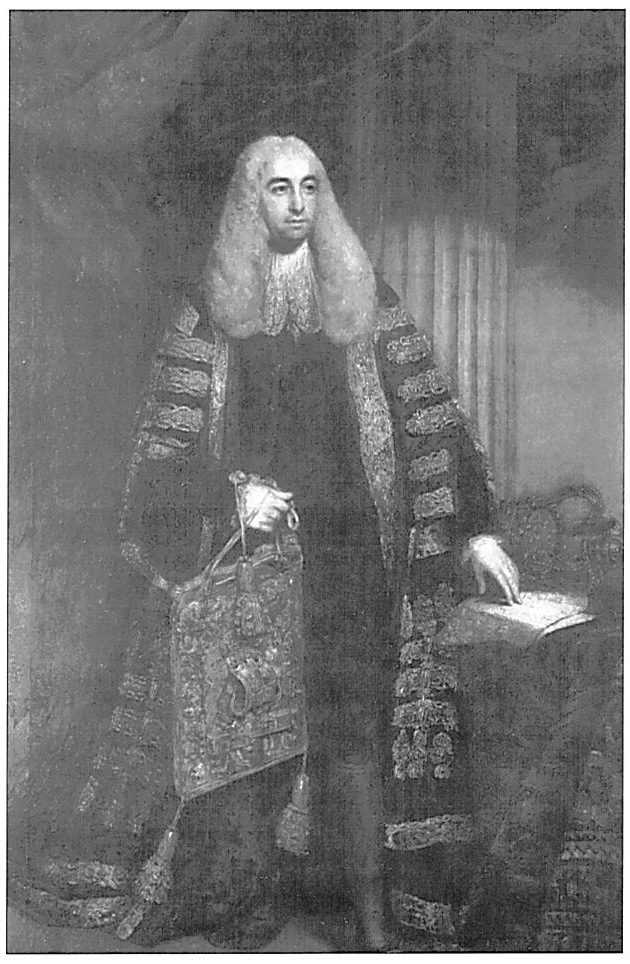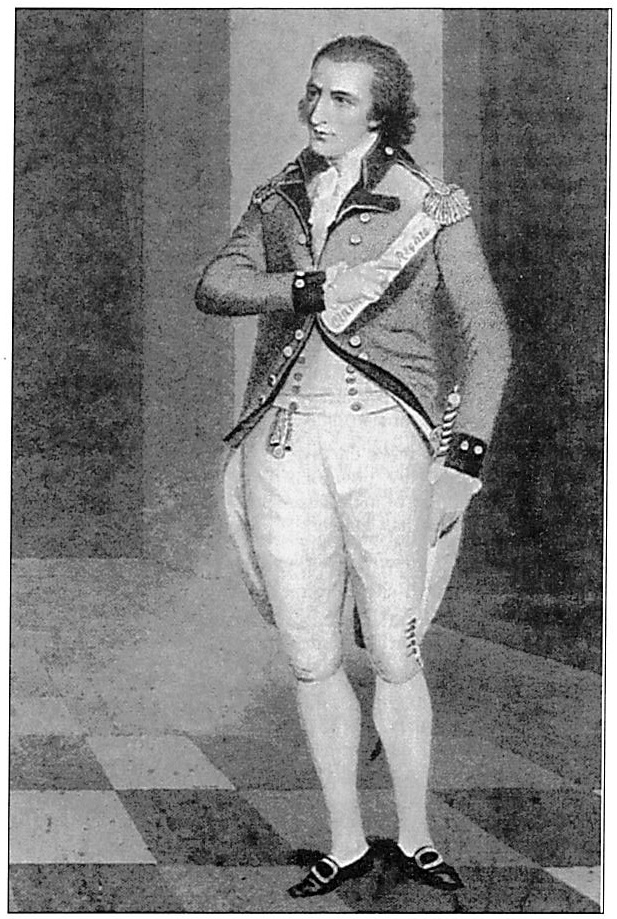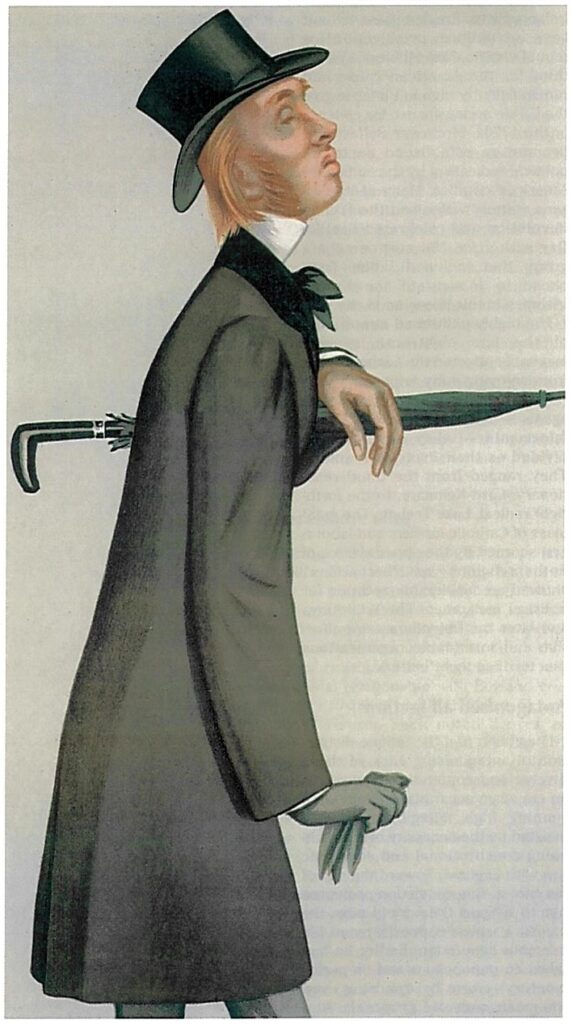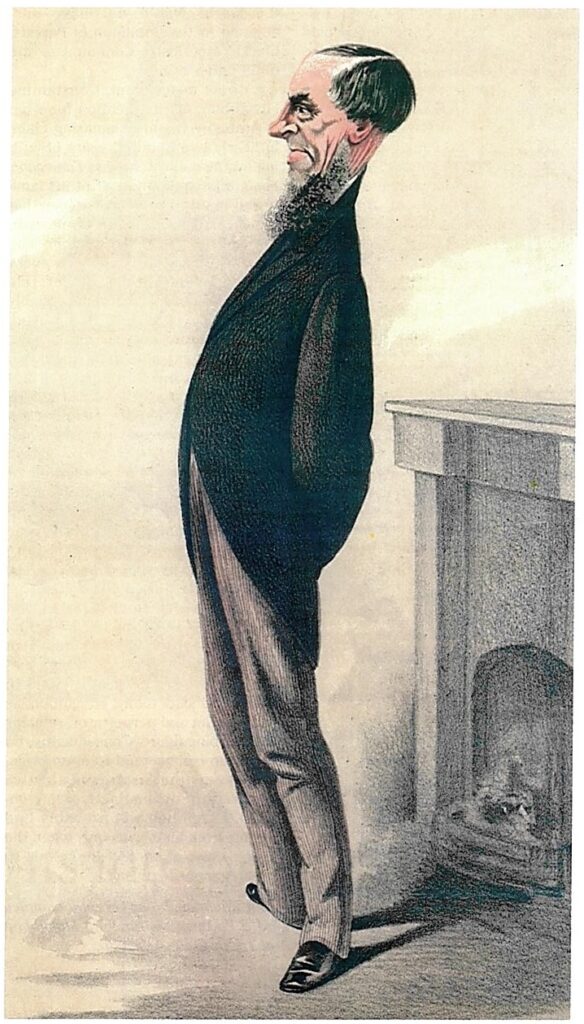by Ann C. Kavanaugh

(COURTESY OF THE NATIONAL GALLERY OF IRELAND)
Few men in the eighteenth-century political world rose more rapidly or spectacularly than John Fitzgibbon. The son of a wealthy convert lawyer, he was barely thirty when he entered Parliament in 1778. Within five years he was appointed Attorney General. In 1789 he attained the highest legal office in Ireland, Lord Chancellor. He advanced equally rapidly in the ranks of the peerage. His appointment as Lord Chancellor brought him the title Baron Fitzgibbon of Lower Connello in Limerick, his native county. In 1794 he advanced to the rank of Viscount Fitzgibbon of Limerick, and finally, in 1795, he attained the title by which he became most noted, or perhaps, most notorious, Earl of Clare. In his various official capacities, he gained an extraordinary influence over successive lords-lieutenant and became the dominant political figure of the 1790s. The hatred he aroused in his rise to power equalled, if it did not surpass, the honours he earned. His reactions to the political crises of his time inspired this monumental loathing.
A quarrelsome élite
During Fitzgibbon’s ascendancy, the Irish political world collapsed into a state of entropy. A small body of Anglicans maintained a precarious monopoly on political power. The question of political and civil rights for Catholics bitterly divided this already quarrelsome elite. Disputes over the constitutional relationship with England created further division, as did the issue of parliamentary reform. Such noted figures as Charlemont, Henry Flood, and Sir Edward Newenham favoured a high degree of Irish autonomy and reform, while opposing any but the most minimal concessions to Catholics. Yet another faction, led by Grattan and the Ponsonby and FitzGerald families, favoured what later became known as Catholic Emancipation, as well as autonomy and reform. Still other Anglicans, mainly disillusioned members of the middle class, became convinced that the twin evils of parliamentary corruption and English domination would never end with piecemeal reforms from College Green and half-hearted concessions from Whitehall. Only a secular republic, based on French and American models, could save Ireland. The United Irishmen were devoted to this end virtually from their inception in 1791.
The United Irishmen
The United Irishmen also included numerous Presbyterians. Contrary to the fixed belief of the governing classes in Ireland, Ulster Presbyterians did not have an uniform predilection for republicanism. Nevertheless, sympathies for the American cause had run sufficiently high in Ulster to give the Castle serious cause for concern in the 1770s. Moreover Belfast had become an established centre of political radicalism by the end of the American conflict. Many of its citizens warmly welcomed the French Revolution and celebrated Bastille Day with eclat. Not surprisingly, a group that included Wolfe Tone chose to inaugurate the United Irishmen in this like-minded city.
The highly politicised atmosphere of the late eighteenth century inevitably affected the Catholics. Far from enjoying unity imposed by the Pope, their priests and/or French agents — a frequent claim of Castle informants — they were just as divided as their Protestant rulers. They ranged from the timid reactionary, Lord Kenmare, to the forthright radical, Luke Teeling. The great mass of Catholic farmers and labourers, scorned by the upper classes of both religions as ‘barbarians’, showed a considerable aptitude for political resistance. The Whiteboys and later the Defenders were effective and formidable organisations that terrified their ‘betters’.
Antagonised all factions
Fitzgibbon had the unique distinction of antagonising each of these diverse and contending factions. In an era when separatist feelings were running high, Fitzgibbon bluntly insisted on the necessity of strengthening constitutional and economic ties with England. Toward the end of his career, this conviction prompted him to support the Act of Union, the measure which copperfastened his infamous reputation. Earlier he had taken an unpopular stand on parliamentary reform by opposing even the most moderate proposals. At a time when Catholics were growing increasingly restive and assertive and when many Protestants were encouraging their political aspirations, Fitzgibbon resisted concessions with his considerable cunning and ruthlessness. Nor did he soften his opposition with the tone of patronising benevolence which late eighteenth-century Irish Protestants commonly adopted toward Catholics. On the contrary, he freely expressed his contempt for Irish Catholics and their church. Although the danger of Catholics to the Protestant establishment in church and state remained his dominant obsession, he loathed the Presbyterians of Ulster as much, if not more. To his mind, Presbyterians or ‘Puritans’, as he usually termed them, were unregenerate subversives who cynically used the Catholics to attain their own sinister end: the establishment of a Cromwellian republic on the ruins of the monarchy and the Church of Ireland.
Mephistophelian influence
His violently reactionary stands on the major issues of the time inevitably aroused equally violent antagonism. The most vitriolic attacks on Fitzgibbon appeared in the popular press of Dublin. Even as a young backbencher, he drew hostile comment for his arrogance, effeminacy, drunkenness and debauchery, as well as for his objectionable political opinions. The newspapers also accused him of exerting a Mephistophelian influence over weak viceroys. The depictions of Fitzgibbon as an evil seducer, at once epicene and ruthless, reached a culmination in a paragraph which appeared in 1784. It portrayed Fitzgibbon as Lucifer incarnate:
No sir, the Devil in hell is not quite as bad as the Devil in human form of whom I mean to speak [Fitzgibbon]; — and yet there is, I must confess, in some particulars, a marvellous similarity between the two.
Pride and envy, we are told, were Lucifer’s crimes and for those he justly forfeited eternal happiness — the ambition of our Devil is boundless — his envy sickens at the welfare of his neighbour; and to gratify these tormenting passions he would willingly forgo every earthly enjoyment.
The Devil is a liar; so is our devil; the Devil is a sophister; our Devil is a lawyer, and a lawyer, it is said, can outwit the Devil himself. The Devil is a tempter; he first deceives unthinking mortals into the commission of wickedness, next abandons them to destruction and mocks at their sufferings. Our Devil seduces the credulous innocent female, robs her of her honour, abandons her to infamy and ruin and then answers her reproaches with derision — of this numberless living examples can be produced.
Other squibs offered a more earthy reason for his unearthly powers: they accused Fitzgibbon of ingratiating himself with his English masters by pimping for them. Above all, his hostile critics in the press harped on the central paradox of his life: the most arrogant and obdurate champion of the Protestant oligarchy came from a comparatively obscure Irish Catholic background.
‘Black Jack’
The hatred he aroused in life pursued him to his grave. His funeral in Dublin was a macabre saturnalia. Both Lord Cloncurry and Thomas Parsons recalled the crowds milling around Fitzgibbon’s house at Ely Place; when his coffin emerged for the final procession to the church, the funerary revellers yelled execrations and cheered . Years later, another witness reported that passers-by had pelted the coffin with dead cats, an insulting allusion to an alleged boast of Fitzgibbon’s that he would render the Catholics as tame as cats (or variously, geld cats). His standing in the popular imagination did not improve as the years passed. The sobriquet by which he is best known, ‘Black Jack’, dates from the nineteenth century. In the words of an ordinary Dubliner interviewed by R.R. Madden in the 1840s, Fitzgibbon was ‘so called for the nature and amount of his political crimes’.
Most nineteenth-century memoir writers and historians perpetuated the Black Jack legend. His opponents on the issue of the Union and their descendants displayed particular bitterness. Sir Jonah Barrington continued the tradition of Fitzgibbon as Lucifer in this sketch of his character:
Authoritative and peremptory in his address, commanding, able and arrogant in his language, a daring contempt for public opinion was the fatal principle which misguided his conduct and Ireland became divided between the friends of his patronage — the slaves of his power — and the enemies of his tyranny.
The son of Henry Grattan, Fitzgibbon’s greatest political opponent, piously continued his father’s political feud . In a multi-volume memoir of his father, published between 1843 and 1849, the younger Grattan portrayed Fitzgibbon as an overweening vulgarian of ‘Popish’ extraction who destroyed the free constitution of Ireland.
Even historians who had sincere intentions of judging Fitzgibbon fairly could not avoid an antagonistic or critical tone. Lecky, the paradigm of the scrupulous and fair-minded historian, attempted to do credit to Fitzgibbon’s more amiable private qualities and to his abilities as a judge. But his adulation for Henry Grattan ultimately defeated him. In slightly more measured language, he confirmed the judgement of the younger Grattan: Fitzgibbon was a sordid, cynical fixer whose reactionary intransigence sparked the rebellion of 1798 and led ultimately to the disaster of the Union. A similar triumph of disgust over detachment afflicted the legal historian O’F1anagan, whose study of the Irish lord chancellors appeared some years before Lecky’s great work, A History of Ireland in the Eighteenth Century. Like Lecky, he expressed admiration for Fitzgibbon’s judicial policies, revulsion for his political actions, and a typically Victorian distaste for the coarser aspects of Fitzgibbon’s character and temper.
A more benign view
C. Litton Falkiner took a more benign view of Fitzgibbon in his Studies in Irish History published in 1902. He went much further than Lecky in paying tribute to Fitzgibbon’s ‘legal intellect, which constantly led him to take the most generous, most humane and most tolerant view open to him’. He also included an invaluable collection of letters in his essay on Fitzgibbon with the intention of showing his ‘lighter and kindlier features’. In the end, Fitzgibbon’s dark, difficult character defeated even this heroic good will. Falkiner had to admit that ‘in his public aspect [Fitzgibbon] was a man of imperious, not to say despotic temperament, little tolerant of opposition and disposed at times to wield authority with Cromwellian sternness’.
Fitzgibbon did have his defenders, and the strength of opinion against him made them especially ardent. Not surprisingly, the arch-loyalist historian Sir Richard Musgrave gave Fitzgibbon a prominent and illustrious role in his Memoirs of the Different Rebellions in Ireland. In Sir Richard’s view, Fitzgibbon did not merely defend the British and Protestant constitution from assorted Popish rebels; he was the constitution in all its pristine glory:
The exalted sphere to which he [Fitzgibbon) has been raised, and the honours conferred on him by our gracious sovereign prove the superior excellence of a mixed government, where the monarch selects men like him distinguished for wisdom, abilities and virtue to fill the principal departments of state.
An adulatory article published in the Dublin University Magazine in 1848 no doubt represented a reaction to the spate of anti-Union and anti-Fitzgibbon memoirs that appeared during that nationalistic decade.
J.A. Froude — devotee of the Fitzgibbon cult
Undesirable contemporary events also inspired J.A. Froude’s History of the English in Ireland in the Eighteenth Century. In Froude’s case, his opposition to the disestablishment of the Church of Ireland prompted him to look to the past for polemical material. Froude was perhaps the greatest devotee of the Fitzgibbon cult. However, like many true believers he was sometimes ludicrously naive. Froude transformed Fitzgibbon into a hero worthy of one of his own over-blown romances and made this prediction (as yet unfulfilled):
If undaunted courage, if the power to recognise and the will to act upon unpalatable truth, if a resolution to oppose at all hazards those wild illusions which have lain at all times at the root of Ireland’s unhappiness, be the constituents of greatness in an Irish statesman, Grattan and Fitzgibbon were likely hereafter to change places in the final judgement of history.
Froude unwittingly did his hero a disservice. The ‘Black Jack’ legend bestowed a certain evil glamour on Fitzgibbon that Froude’s tiresome eminent Victorian manifestly lacked. In the process of transforming Fitzgibbon· into a pro-counsel of Empire sans peur et sans reproche, Froude ignored strong evidence of a robust and pleasure-loving temperament in his hero:
I believe Fitzgibbon’s private life to have been a simple one. Had it been stained by any vice, we should all have heard of it, for no other public man ever had more bitter or unscrupulous antagonists.
In the light of innumerable newspaper articles, even in government-controlled publications, and in the light of the recollections even of favourable contemporaries, all of which attested to Fitzgibbon’s ‘gallantry’, drinking and taste for luxury, Froude’s claim is astonishing, to say the least.
A more credible defence
A more credible defence of Fitzgibbon came from an unexpected source: James Roche, a devoutly Catholic member of a great merchant family with branches in Cork and Limerick. Roche had one great advantage over Musgrave, Froude or any of the other historians who judged Fitzgibbon. In his youth, Roche had known Fitzgibbon. Perhaps in consequence, Roche’s reminiscences, published in 1851 under the title Critical and Miscellaneous Essays by an Octogenarian, offered the first recognisably human portrait of Fitzgibbon. He emerged from Roche’s pages neither as Lucifer nor as the apotheosis of the British Empire, but as a mere mortal, with both good and bad qualities. Roche acknowledged Fitzgibbon’s ‘overbearing temper and despotic authority’. He also noted Fitzgibbon’s coarse language and demeanour (more evidence which seems to have escaped Froude’s attention). At the same time, Roche paid what is perhaps the most deeply-felt and affectionate tribute to Fitzgibbon:
In private life … I can affirm that he was a generous and indulgent landlord, a kind master and an attached friend.
He also refuted popular insistence on Fitzgibbon’s despotic cruelty. Roche not only acknowledged that Fitzgibbon had ‘substantial grounds for several of his public measures’, but also added:
I could state many redeeming instances of persons whose legal guilt could not be gainsaid, saved by him from the lash and the halter.
Of all the nineteenth-century writers who addressed the enigma of John Fitzgibbon, Roche probably deserves the most credence. Not only was he a Catholic, but he wrote at a time when Fitzgibbon had few defenders. Under such circumstances, the tribute of a man who had every reason, religious and political, to dislike Fitzgibbon, has infinitely more worth than the hagiography of Musgrave or Froude.
Admiration or antagonism?
The twentieth century has seen the appearance of many excellent historians of eighteenth-century Ireland, resulting in valuable rebalancing of both nationalist and loyalist bias. In spite of these positive developments, Fitzgibbon has attracted comparatively little attention. Full-length biographical studies do exist, but most of them continue the dubious tradition of hagiography. Eliot Fitzgibbon’s odd little book Earl of Clare: Mainspring of the Union (London 1960) epitomises the first category. He devotes half his book to proving Fitzgibbon’s impeccable descent from the Normans and the ancient Trojans and the other half to arguing that if proper heed had been paid to Fitzgibbon, the British Empire would never have fallen and the world would not have succumbed to the dominion of Papists, blacks, Americans, Communists and other undesirables!
A direct descendant, Constantine Fitzgibbon, merits mention for what is probably the most amazing claim in nearly two hundred years of writing on the subject. In Miss Finnegan’s Fault, a personal memoir of his family and in other works, he argues that his ancestor was, all appearances to the contrary, a Roman Catholic who went to Mass in his carriage every Sunday! Whatever his secret religious yearnings, Fitzgibbon probably did not advertise them by descending on country chapels in his goldembossed carriage. The man had many faults but stupidity was not one of them.
It is the nature of the man that has thwarted Fitzgibbon’s historians, not any lack of ability or distinction on their part. The genius of a Froude or a Lecky transcends their problematic encounters with Fitzgibbon. The brutal political antagonism of his time probably scarred Fitzgibbon more than any of his contemporaries. An eighteenth-century polish softens the edges of Charlemont, Grattan and Flood, while the glamour of youthful idealism surrounds his United Irish antagonists — Tone, Teeling and McCracken. But because conflict in Ireland persists today, Fitzgibbon, as both victim and perpetrator, remains a disturbing figure. Consequently, no historian can pretend to an unprejudiced view: he inspires instinctive admiration or instinctive antagonism. Fitzgibbon will probably find justice from historians only when the tragic cycle of conflict he helped to create comes to an end.
Ann Kavanaugh has recently completed a Ph.D. thesis on John Fitzgibbon at Trinity College, Dublin.
Further reading:
J.A. Froude, The English in Ireland in the Eighteenth Century (3 vols, London 1872-4).
W.E.H. Lecky, History of Ireland in the Eighteenth Century (5 vols, London 1892).
J. Roche, Critical and Miscellaneous Essays by an Octogenarian (Cork 1851).
A. Kavanaugh, ‘John Fitzgibbon, Earl of Clare’ in D. Dickson, D. Keogh and K. Whelan (eds.), The United Irishmen: Republicanism, Radicalism and Rebellion (Dublin 1993).



